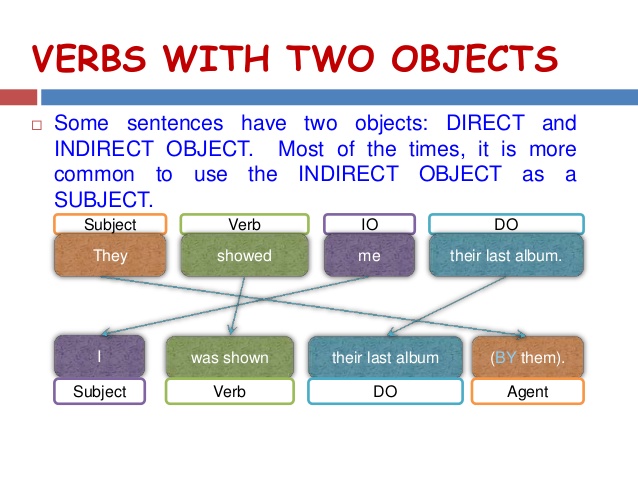
 Two objects in an active sentence – two possible passive sentences
Two objects in an active sentence – two possible passive sentences
When there are two objects in an active sentence, there are two possible active sentences and two possible passive sentences.
- Sentence 1: The professor gave the students the books.
- Sentence 2: The professor gave the books to the students.
There are two objects in each of the following sentences:
- Object 1 = indirect object → the students
- Object 2 = direct object → the books
An indirect object is very often a person, a direct object a thing. When a direct object is followed by an indirect one, we put to in front of the indirect object.
Active sentence 1
Active sentence 2
Each of the objects (books/students) in the active sentences can become subject in the passive sentence.
Passive sentence 1
Passive sentence 2
Causative & Impersonal Passive

















